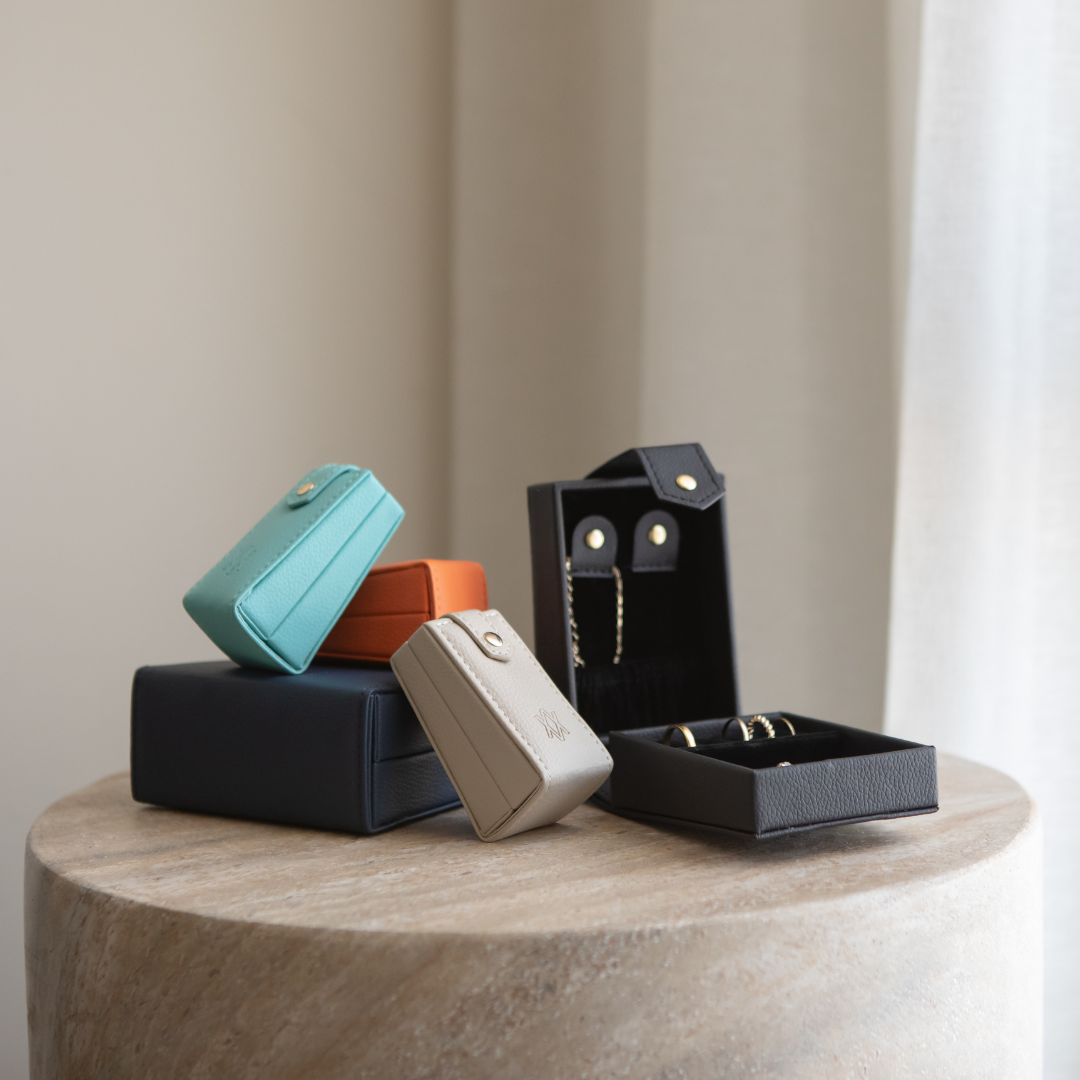Choosing good quality jewellery can be a daunting task, especially with so many options available today. Whether you're investing in a piece for yourself or buying a gift for someone special, it's important to know what to look for to ensure you're getting something that will last and maintain its value. Here are some tips to help you select good quality jewellery that you’ll love for years to come.
1. Know Your Metals
One of the key indicators of good quality jewellery is the type of metal used. Different metals have varying levels of durability and value, so it's important to choose wisely based on your needs and budget.
Gold: High-quality gold jewellery typically comes in 18k or 14k gold. 18k gold is 75% pure gold and is more durable than 24k gold, which is softer and more prone to scratching. 14k gold contains more alloy metals, making it even more durable but slightly less valuable.
Platinum: Known for its durability and resistance to tarnish, platinum is a premium metal used in high-quality jewellery. It’s more expensive than gold but is a great choice for long-lasting pieces like engagement rings or wedding bands.
Sterling Silver: Sterling silver is made of 92.5% silver and 7.5% other metals, often copper. It is a high-quality material for jewellery, but it is more prone to tarnishing than gold or platinum. Look for the "925" hallmark, which indicates its purity
Vermeil and Gold-Plated: While these options are more affordable, they are not as durable. Vermeil is gold-plated silver, while gold-plated jewellery is usually gold-coated over a base metal like copper or brass. Over time, the gold layer can wear off, revealing the base metal underneath.
2. Pay Attention to Gemstones
Gemstones are another key factor in assessing the quality of jewellery. Whether you're looking at diamonds, sapphires, emeralds, or other precious stones, it’s important to evaluate their cut, clarity, colour, and carat weight (known as the 4 Cs for diamonds). These factors determine the beauty and value of the stone.
Natural vs. Synthetic Gemstones: Natural gemstones are formed in nature and are generally more valuable than synthetic gemstones, which are lab-created. However, high-quality synthetic stones can still be beautiful and are often more affordable.
Certification: If you're buying a piece with a high-value gemstone like a diamond, make sure it comes with certification from a reputable grading organisation like GIA or IGI. This ensures the quality and authenticity of the stone.
3. Inspect the Craftsmanship
Good quality jewellery is not just about the materials but also about the craftsmanship. Here are some things to check:
Settings: Ensure that the stones are securely set in the jewellery, whether it's a prong setting, bezel setting, or pave. Stones that are loose or poorly set may fall out easily, leading to expensive repairs or replacements.
Finish: Look for a smooth, even finish on the metal with no visible scratches, dents, or irregularities. Well-made jewellery should feel substantial and smooth to the touch.
Clasps and Closures: Check the quality of clasps and closures on necklaces, bracelets, and earrings. Good quality jewellery will have sturdy, well-functioning clasps that won’t break easily.
4. Understand Hallmarks
One of the easiest ways to identify good quality jewellery is by checking for hallmarks. Hallmarks are small stamps found on the inside of rings, necklaces, and other pieces of jewellery that indicate the metal’s purity and sometimes the maker’s mark.
Gold Hallmarks: Look for stamps like "18k," "14k," or "750" for gold, which indicates the gold’s purity.
Sterling Silver: A "925" stamp indicates that the piece is made from sterling silver.
Platinum: Platinum jewellery will typically be stamped with "950" or "PT950" indicating its purity.
5. Consider the Brand
When investing in jewellery, the brand can sometimes indicate quality. Established jewellery brands often have a reputation for high standards and exceptional craftsmanship. While branded jewellery may come at a premium price, you’re often paying for quality assurance, excellent customer service, and longevity.
Research the Brand: Look for reviews and testimonials about the jewellery brand to get a sense of their reputation. Established brands usually offer guarantees or warranties, which adds peace of mind to your purchase.
Choosing good quality jewellery is all about understanding the materials, evaluating craftsmanship, and considering long-term value. Whether you're investing in a stunning diamond ring or a classic gold bracelet, make sure to inspect the details and choose pieces that will stand the test of time.
Remember, high-quality jewellery deserves high-quality storage. Keep your pieces safe and organised with a beautiful jewellery box or travel jewellery case. Explore our collection of jewellery organisers to protect your treasured pieces for years to come.



